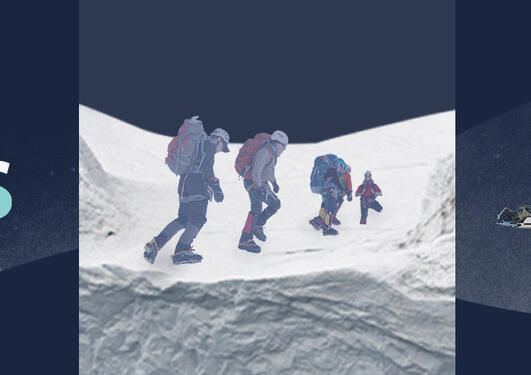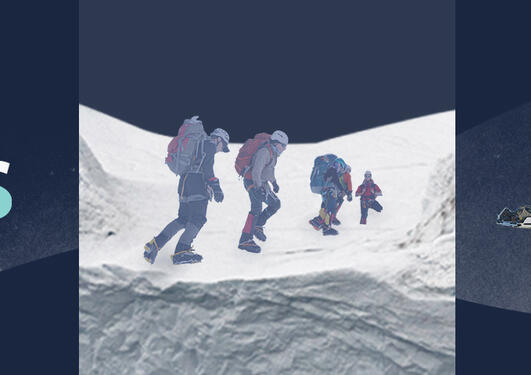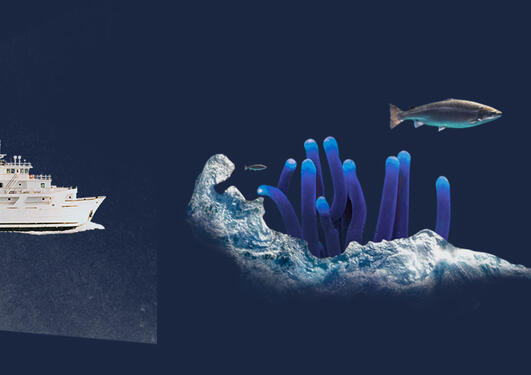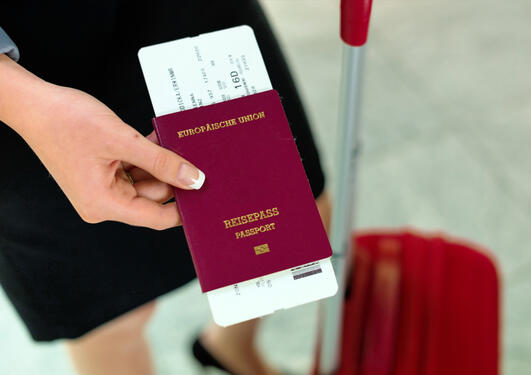Research possibilities for the MSCA SEAS postdoctoral research fellow in ocean observation technology
The information on this page is a supplement to the complete advertisement of the position in the recruitment-portal Jobbnorge. The full advertisement of this position in Jobbnorge will be available from April 1, and linked from this web page. Call deadline was June 12, but has been extended until September 5, 2023 for this position.
Main content
Key information
| One position | MSCA SEAS postdoctoral research fellow at Department of Earth Sciences |
| Jobbnorge title | MSCA SEAS postdoctoral research fellow in ocean observation technology |
| Topical frame | Connected to the Arctic spreading ridges, with a main focus on the volcanic activity, and associated hydrothermal activity and the use of ocean observatory technology to study these systems |
| Supervisor-team | Researcher Thibaut Barreyre and Associate Professor Steffen Leth Jørgensen |
| Mobility | For an incoming candidate |
| Unit of employment | Department of Earth Sciences at University of Bergen |
| Group affiliation(s) | The Centre for Deep Sea Research/Geochemistry and Geobiology Research Group/The Norwegian Ocean Laboratory |
Thematic area and contact
This position is connected to the Arctic spreading ridges, with a main focus on the volcanic activity, and associated hydrothermal activity and the use of ocean observatory technology to study these systems.
The position is open to an incoming candidate, see mobility rules.
The successful candidate will be employed at the Department of Earth Science and included in the Centre for Deep Sea Research.
Information about the supervisors, research groups and research possibilities for the fellow is available below. For further details about the research possibilities please contact Associate Professor Steffen Leth Jørgensen or Researcher Thibaut Barreyre.
Research possibilities and resources
Supervisors
Thibaut Barreyre is a junior research scientist in marine geophysics at the department of Earth Science, University of Bergen, and an adjunct scientist at the department of Geology and Geophysics (G&G) at the Woods Hole Oceanographic Institution (WHOI). He is also associated with the Centre for Deep Sea Research, leading the theme on Innovation and Technology, and the Norwegian Ocean Observation Laboratory. His research focuses on the interplay between fluid flow and geological and oceanographic processes in porous media using a combination of observational work, data analysis, and modeling. He has participated in 12+ international expeditions to these systems worldwide (9+ as geophysics team leader), developing a professional network of US and EU mid-ocean ridge researchers perfect for nurturing the postdoctoral student early career connections. He is currently leading the international InterRidge working group on deep-sea observatories. As a successful follow-up of this observatory effort, he is one of the PIs of a recent Infrastructure grant from the Research Council of Norway to establish the Norwegian node of EMSO in which he leads the EMSO-Mohn Observatory work-package.
Steffen Leth Jørgensen is Associate Professor at the Dept. of Earth Science, University of Bergen (UiB) and is currently director of the Centre for Deep Sea Research. He is also leading the research group Geochemistry and Geobiology and is head of the geomicrobiology laboratory. Jørgensen holds a PhD in geomicrobiology from the Centre of Excellence in Geobiology (UIB) from 2013 and his research is at the interface between geology, geochemistry and geobiology where he tries to understand the complex interplay between the lithosphere, hydrosphere, and biosphere in deep marine systems. He has extensive experience with deep sea operations and cruises from more than 15 expeditions at sea, several as chief or co-chief scientist. He has supervised 8 PhD/Post docs and numerous master students.
Research groups/Centers
The supervisors have an established cooperation with the research groups and centers at the University of Bergen that are listed below.
- The candidate will be a member of the Centre for Deep Sea Research (https://www.uib.no/en/deepsea). The Centre is integrating marine geosciences and biosciences in a joint effort to address a range of basic science questions related to deep-sea processes, resources and environment. The Centre is responsible for major national ocean observation systems. The Centre provides professional support and advice to industry, authorities and the society on deep-sea resources and environments.
- The candidate will be affiliated to the Geochemistry and Geobiology Research Group at the Department of Earth Science (https://www.uib.no/fg/geobio)
- The candidate will be affiliated with the Norwegian Ocean Laboratory that is housing a range of ocean observatory systems and that is in the center of a hub of ocean technology and innovation companies.
The choice of co-supervisor from another department (or national research/company partners) than the postdocs host department will be selected dependent on the submitted project profile.
National co-operation partners
A co-operation with Norwegian Defense Research Establishment (FFI) on AUV systems has been ongoing for more than 10 years. Collaboration on seafloor observatory systems and technology involves the partners of the NOR-EMSO observatory (UiB, IMR, UiT, NORCE). In this project UiB and Centre for Deep Sea Research leads the establishment of an observatory system at the Mohns Ridge. It also involves the six research partners of the LoVe-coastal observatory, where large industrial companies like Equinor are involved.
International co-operation partners
Depending on the focus of the submitted postdoctoral project, the international research and/or university partners hosting the candidate could be at the Ifremer, University of Kiel/GEOMAR, University of Bremen (MARUM), University of Southampton.
See the full advertisement in Jobbnorge
Important general information
Please be aware
- That until April 1st 2023 (official call opening) there might be minor adjustments in the Guide for applicants and the templates needed for applying.
- That the application process is time-demanding and requires a close dialogue with name-given available faculty supervisor or contact who, close to the deadline, must sign a supervisor match declaration if an application is to be eligible.
- That some fields of research, especially within sensitive technology areas, might be enforced by Norwegian and international regulations regarding Control of the Export of Strategic Goods, Services and Technology. Candidates who by assessment of the application and attachment are seen to conflict with the criteria in these regulations might be prohibited from recruitment to UiB.



